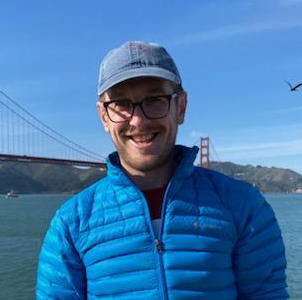Description of the video:
IU campus shots roll, beginning with the Sample Gates and Franklin Hall.
Voiceover, Elaine Monaghan, professor of practice, The Media School: The world has become vastly more complex with the growth of social media.
Monaghan speaks to the camera.
Monaghan: And in order to be able to navigate that world, we have to be literate in data. And that doesn't just mean adding numbers up. It means being able to look at gigantic data sets and figure out how to use them to tell stories.
Students point to computer screens working in a lab at class. A student fixes a tie before anchoring a news show. A student points a camera. Coding appears on a black screen.
Monaghan: The data journalism concentration is one of the options available to students who enroll in our M.S. program. And it focuses more on data.
Monaghan speaks to the camera.
Monaghan: And so it really gives you an opportunity to go beyond the basic and traditional journalism reporting skills and to expand your ability to use data for storytelling, analysis, visualization, and to help your audience understand this world.
Various data sets appear on screen.
Gerry Lanosga, associate professor, The Media School, speaks to the camera.
Lanosga: From the journalism side, we, we really teach data literacy from the ground up. Once we get past the, the basic levels, then they'll go on to some data science training where they learn basic programming skills, for instance, which are important for particularly those journalists who want to develop visualizations, who want to develop news apps and so forth.
HTML appears on a screen. Students work at computers.
Lanosga: And they'll learn those things as part of the work over at the Luddy School.
Monaghan speaks to the camera: You go and ask somebody a question.
Shots of Washington, D.C., and policy meetings appear.
Monaghan: It's much harder for that person to ignore the equation if you turn up with data in your question and in your pocket and you're able to challenge governments, policymakers, powerful people, if you have the data knowledge.
Campus shots roll beginning with a focus on the Sample Gates facing Kirkwood.
Lanosga: The journalist who is conversant with data in a newsroom sort of rises to the top.
Black screen. Text: Indiana University. Mediaschool.indiana.edu



